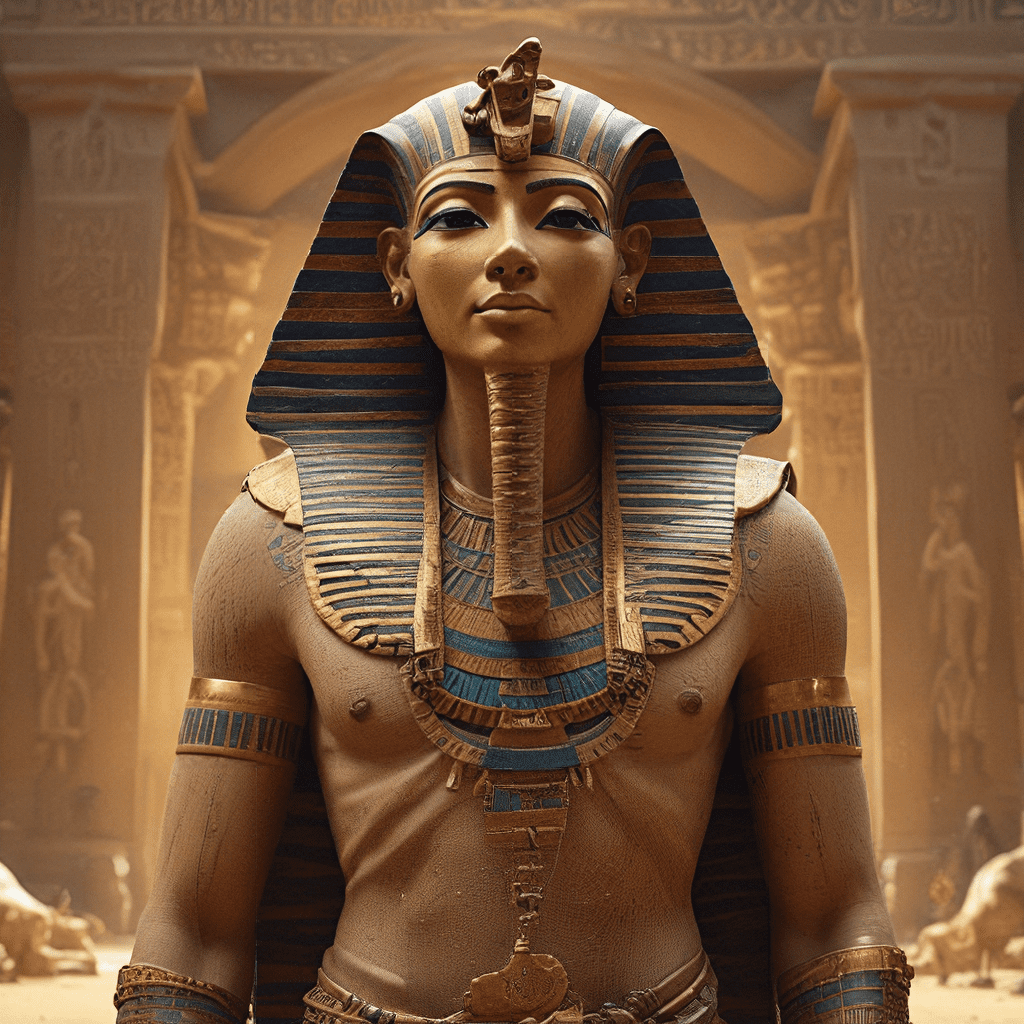1. Introduction: The Allure of Ancient Egypt
Ancient Egypt, a land of majestic pyramids, enigmatic hieroglyphs, and captivating mythology, has long held a mystical allure for explorers and scholars alike. The ancient Egyptians possessed a profound understanding of the cosmos, weaving intricate narratives about the creation of the universe, the journey of the sun god Ra, and the afterlife. This ancient wisdom, passed down through generations, continues to fascinate and inspire us today.
2. The Cosmos: A Tapestry of Gods and Goddesses
For the ancient Egyptians, the cosmos was a vibrant tapestry woven with gods and goddesses, each representing a celestial force or aspect of nature. They believed that the universe was a divine entity, governed by the will of the gods. The sky, the earth, and the underworld were interconnected realms, where celestial beings interacted with the lives of mortals. The stars, planets, and constellations were seen as divine messengers, guiding the lives of humans and influencing their destinies.
3. The Sun God Ra: The Divine Architect of Creation
At the heart of ancient Egyptian cosmology stood the sun god Ra, the creator and ruler of the universe. Each morning, Ra emerged from the eastern horizon, sailing across the sky in his solar boat, bringing light and life to the world. At sunset, he journeyed through the underworld, battling demons and monsters to ensure his rebirth the following day. Ra’s journey represented the cyclical nature of existence, the eternal struggle between light and darkness, and the promise of renewal. The Egyptians believed that Ra’s power flowed through the pharaoh, making him a living embodiment of the divine.
4. The Underworld: A Labyrinth of Trials and Transformations
The ancient Egyptians believed that after death, the soul embarked on a perilous journey through the underworld, a labyrinthine realm ruled by the god Osiris. This journey involved a series of trials and judgments, where the soul’s worth was weighed against the feather of Ma’at, the goddess of truth and justice. If the soul passed the judgment, it would be granted eternal life in the Field of Reeds, a paradise where the deceased could live in peace and harmony. However, if the soul was deemed unworthy, it would be devoured by the monster Ammit, who represented chaos and destruction.
5. The Pharaoh’s Role: Divine Kingship and Cosmic Order
The pharaoh, the supreme ruler of Egypt, was considered a divine king, descended from the gods themselves. He was the embodiment of cosmic order, responsible for maintaining harmony between the earthly and celestial realms. The pharaoh’s power was derived from his connection to Ra, the sun god, who granted him divine authority to rule over Egypt. His reign was seen as a reflection of Ra’s eternal cycle, representing the cyclical nature of life, death, and rebirth.
6. The Pyramid’s Purpose: A Gateway to the Afterlife
The magnificent pyramids, towering monuments to the pharaohs, were not merely tombs but gateways to the afterlife. They were carefully designed to align with the stars and celestial bodies, channeling the divine energy of Ra into the pharaoh’s soul. The chambers and passages within the pyramids represented the journey through the underworld, the trials the deceased soul had to face, and the ultimate goal of attaining eternal life. The pyramids served as a symbolic bridge between the world of the living and the world of the dead, connecting the pharaoh to the eternal cosmos.
7. The Pharaoh’s Legacy: A Timeless Connection to the Divine
The pharaohs left behind a legacy of magnificent temples, towering monuments, and intricate hieroglyphs, offering us a glimpse into their beliefs and their understanding of the world. Their belief in the divine interconnectedness of the universe, the cyclical nature of existence, and the importance of maintaining cosmic order continues to resonate with us today. Their profound understanding of astronomy, mathematics, and architecture is a testament to their intellectual prowess and their dedication to achieving immortality through their connection to the cosmos.
8. Modern Interpretations: Decoding Ancient Wisdom
Modern scholars and researchers continue to unravel the mysteries of ancient Egyptian cosmology, using scientific methods to uncover the meaning behind their rituals, beliefs, and symbols. By deciphering their texts, examining their astronomical observations, and understanding the symbolic significance of their monuments, we can gain a deeper understanding of their worldview and their relationship with the universe. This ongoing exploration sheds light on the depth and complexity of ancient Egyptian civilization, revealing their profound understanding of the cosmos and their timeless connection to the divine.
9. The Twist: New Discoveries and Unconventional Theories
Recent archaeological discoveries and unconventional theories have challenged traditional interpretations of ancient Egyptian cosmology. New evidence suggests that the ancient Egyptians may have had a more sophisticated understanding of astronomy than previously thought, incorporating elements of celestial mechanics and planetary movements into their beliefs. These new discoveries add an unexpected layer of complexity to our understanding of their worldview, suggesting that their cosmology was far more intricate and nuanced than previously imagined.
10. Conclusion: A Glimpse into Eternity
The secrets of the pharaohs continue to unfold, offering us a glimpse into the depths of ancient Egyptian wisdom. Their cosmology, a fascinating blend of mythology, astronomy, and ritual, provides a window into their perception of the universe and their belief in the eternal cycle of life, death, and rebirth. Their enduring legacy serves as a reminder of the power of human imagination, the pursuit of knowledge, and the eternal search for meaning and purpose in the vastness of the cosmos.




